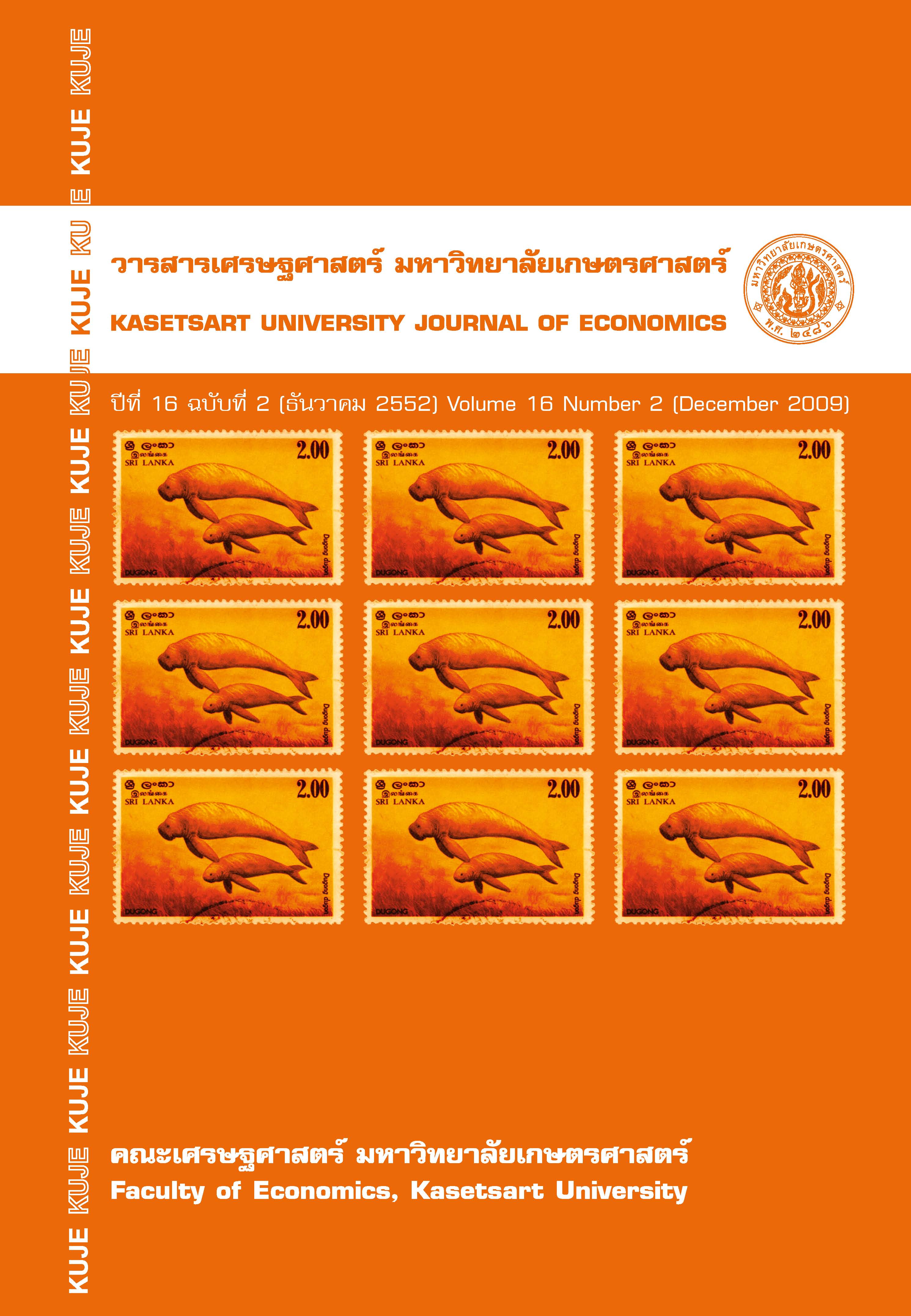ความเป็นฤดูกาลของการท่องเที่ยวในจังหวัดเชียงใหม่
Main Article Content
บทคัดย่อ
บทคัดย่อ
บทความนี้ศึกษาความเป็นฤดูกาลของการท่องเที่ยว โดยพิจารณาจากการเข้าพักในสถานที่ พักแรมในจังหวัดเชียงใหม่ของนักท่องเที่ยวชาวไทยและชาวต่างชาติระหว่างปีพ.ศ. 2535-2550 การวิเคราะห์อาศัยการประยุกต์ X-12-ARIMA และค่าสัมประสิทธิ์จีนีเพื่อประเมินอิทธิพลของฤดูกาลและการกระจุกตัวของการมาเที่ยวตามฤดูกาล ผลการศึกษาชี้ว่าฤดูกาลท่องเที่ยวของจังหวัดเชียงใหม่ยาวถึง9 เดือน ยาวกว่าที่เชื่อกันว่ามีเพียง 4-6 เดือน ช่วงนอกฤดูท่องเที่ยวเป็นเดือนพฤษภาคม มิถุนายน และกันยายน สัดส่วนการ เปลี่ยนแปลงของจำนวนนักท่องเที่ยวช่วงนอกฤดูและในฤดูการท่องเที่ยวใกล้เคียงกัน แสดงว่าความผันผวนตามฤดูกาลไม่มีอิทธิพลต่อการเพิ่มขึ้นหรือลดลงของจำนวนนักท่องเที่ยวในภาพรวม ลักษณะการท่องเที่ยวของคนไทยมีความเป็นฤดูกาลสูงกว่านักท่องเที่ยวต่างชาติ อย่างไรก็ตามความหลากหลายของแบบแผน การท่องเที่ยวทั้งของชาวไทยและชาวต่างชาติทำให้ผลของความเป็นฤดูกาลลดลง การเพิ่มส่วนแบ่งการตลาด กลุ่มนักท่องเที่ยวต่างชาติจะมีส่วนทำให้การท่องเที่ยวกระจายตัวตามช่วงฤดูกาลดีขึ้นการจัดกิจกรรมส่งเสริมการท่องเที่ยวที่หลากหลายและการเปิดตลาดใหม่นอกฤดูในช่วงเดือนดังกล่าว จะเป็นแนวทางหนึ่งในการเพิ่มศักยภาพการท่องเที่ยว
คำสำคัญ: การท่องเที่ยว ความเป็นฤดูกาล ค่าสัมประสิทธิ์จีนี สถานที่พักแรม จังหวัดเชียงใหม่
Abstract
This paper investigates the seasonality and seasonal concentration of domestic and international tourists arrivals at accommodation establishments during 1992-2007 in Chiang Mai. The study applies X-12-ARIMA and Gini coefficient to evaluate the influence of seasonality and seasonal concentration. The results show that the tourist season in Chiang Mai was 9 months, longer than is commonly believed, i.e. 4-6 months. The low season was in May, June and September. The proportional changes in the number of tourists in low and high seasons were close. This indicates that the seasonal variation had no effect on the changes in the number of tourists. Thai tourists caused a higher seasonal concentration than foreign tourists. However, the diversification of tourism patterns of both Thai and foreign tourists reduced the seasonal effects. Increasing the market share of foreign tourists would reduce the seasonal concentration. Promoting various activities and developing new tourism markets in the low season would increase the potential of the sector.
Keywords: tourism, seasonality, Gini coefficient, accommodation, Chiang Mai Province
Article Details
The paper is published under CC BY-NC-ND, in which the article is freely downloaded and shared in its original form non-commercially and its citation details are identified.


